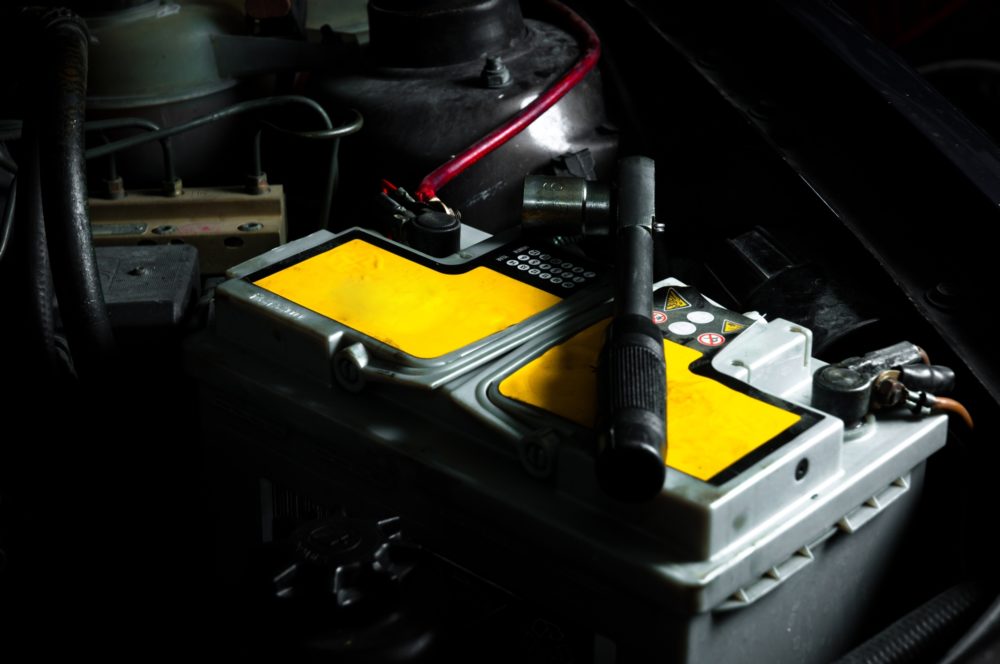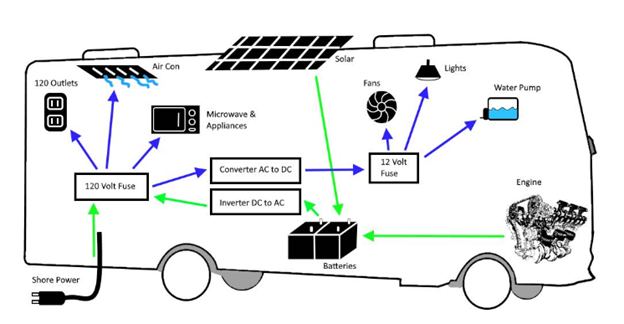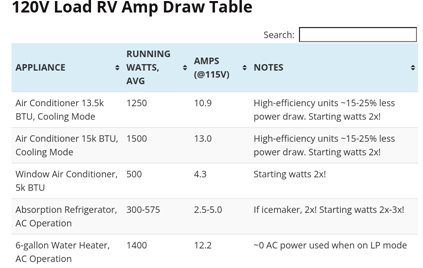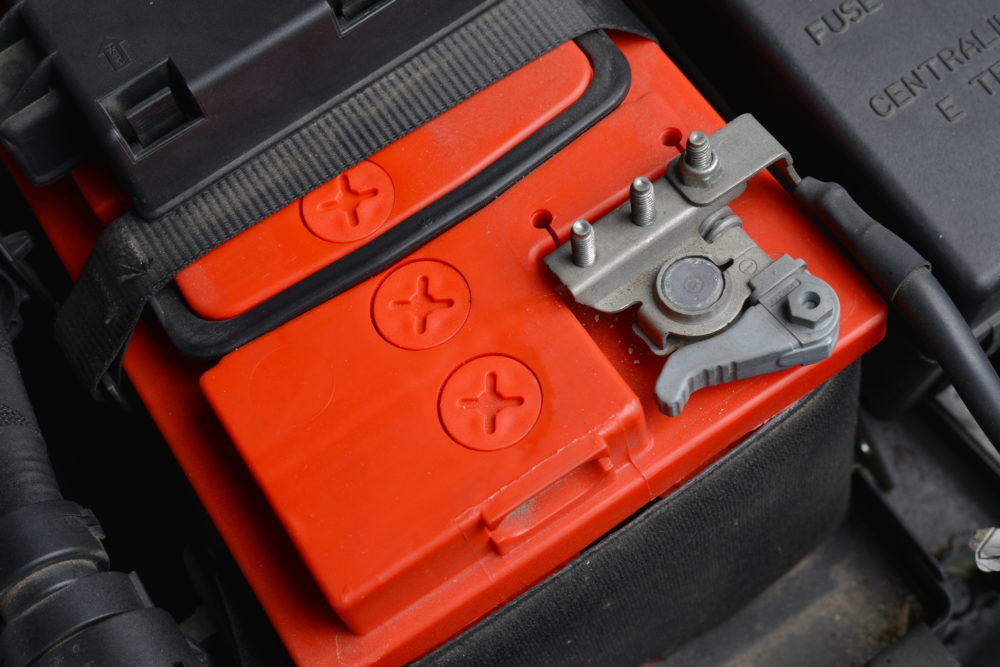How Long Does An RV Battery Last?
RV Battery Power Basics
The RV battery is the heartbeat of the RV, an essential component that provides 12V power to many appliances, lights and even the hitch jack/lifting mechanism (when applicable).

Contents
There are two different electrical wiring systems in the RV: a 12V DC and a 120V AC circuit. The 12V operates off the RV battery while anything that is on the 120V circuit requires shore power (and a converter for anything that runs off 12V). Most appliances and power outlets run off 120V AC.
Some common terminology around RV batteries is defined below to help you be familiar and better understand how RV batteries work:
Amp-hour rating: this rating tells you how long the battery can supply one Amp for. For example: “A typical deep-cycle RV battery will be rated around 80 amp-hours, which in theory would supply one amp for 80 hours. However, in reality, if you discharge a lead-acid battery (what you likely have in your RV) more than 50% of the rated capacity you will greatly shorten the lifespan of the battery.” (Source: rvlife.com.)
Voltage: Your RV actually has three separate electrical systems. It has a 12-volt DC automotive system, a 12-volt DC coach system, and a 120 volt AC coach system. (Source: rvservices.koa.com.)
Deep-cycle battery cycle: “A deep cycle battery is a lead battery designed to provide sustained power over a long period and run reliably until it is 80% discharged or more, at which point it needs to be recharged. It is important to note that although deep cycle batteries can be discharged up to 80%, most manufacturers recommend not discharging below 45% to extend the life of the battery.
The level of discharge is the “deep cycle” and stands in contrast to other types of batteries that provide only short bursts of energy before they need to be recharged. To be specific, a starter battery discharges only a tiny percentage — usually 2 to 5% —each time it is used.” (Source: www.crownbattery.com)
Below is a brief visual chart on how the RV power system works:

Types of RV Batteries
There are several different kinds of RV batteries:
Deep cycle: provides a long, steady stream of power. They last on average for a lifespan of six years, and can go up to 30 days without having to be recharged when not in use.
Flooded lead-acid: longest on the RV market, fairly affordable. “They consist of positively and negatively charged lead plates submerged in an electrolyte solution, which helps chemically generate the power you need. You’ll need to top-off this solution with distilled water occasionally. Additionally, flooded lead-acid batteries typically need to be installed in a place with sufficient ventilation. “ (Source: www.getawaycouple.com). These last on average anywhere from 18 months to 5 years, with up to six months without recharge when not in use.
Absorbent Glass Mat (AGM): these operate better in extreme temperatures. “Absorbent glass mat or AGM batteries rely on similar principles to flooded lead-acid batteries — an electrolyte solution and lead plates generate power. However, AGM batteries store the solution within the absorbent mat that gives the battery its name. This avoids the need for topping off and venting, as these batteries are completely sealed.” (Source: www.getawaycouple.com). These last on average 3-10 years, much longer than the flooded lead-acid ones.
Lithium-ion: These batteries are safe, lightweight, longest-lasting, temperature-tolerant, with fast and safe charging. That’s why they are also the priciest option. These last about five years or 2,000 charge cycles, but can extend up to 3,000 charge cycles, if maintained properly.
Gel: these batteries are extremely durable and vibration-resistant, which makes them a great fit for off-road adventures. They can last up to six years.
Factors That Affect How Long RV Batteries Can Last
There are several factors that contribute to the overall duration of RV battery life:
- Regular maintenance (topping off with distilled water, cleaning the connectors etc.)
- Proper charging (see more on that below), charging/discharging rate
- Proper storage and disconnect when not in use (protect from the elements, such as sun and rain damage), and
- Weather conditions.
Charging
You can charge the RV battery is several different ways:
- Via the tow vehicle/car battery (this takes between 10-40 hours)
- Using an external source of power (battery charger (8 hours), solar (5 hours for 100 Amp hr battery), generator (8-10 hours))
- Plugging into shore power (10+ hours)
Make sure you don’t over- or undercharge your batteries, as this is the most occon way to shorten the overall lifespan of your battery. You should only recharge your battery when it’s at 45-50 percent discharge.
Battery Storage
Even though there are different types of RV batteries with different mechanisms (how they work intrinsically), the consensus for RV battery storage is the same for all types of RV batteries to extend their life and to avoid damage:
When your RV is not in use for more than a week, disconnect the battery and place it into a dry and safe location (if not secured by covers or enclosure). For short-term storage (1-4 weeks), you should be able to use quick disconnect without having any issues with parasitic draw.
When storing the RV for winter, remove the batteries for storage in the garage etc. and charge on slow-trickle charge in the spring before use.
When plugging the RV into shore-power for an extended period of time, make sure you disconnect the battery, as well, to avoid overcharge damage.
Before you re-connect the battery in the springtime (or after extended storage), check the battery health (measure the charge hold after a full charge) and clean the connectors, if needed. About once a month, pull off the caps on flooded lead-acid batteries to check the fluid levels and top off with distilled water, if necessary.
Keep in mind that “[b]atteries should only be watered after charging unless the plates are exposed prior to charging. If the plates are exposed add enough water to cover the plates and charge the battery. When the battery is fully charged fill each cell to the bottom of the vent well.” (Source: koa.com)
Voltage
Sites like AskTheRVengineer.com have a detailed explanation of the math that one can use to calculate the draw and power needs per each appliance in the RV.

RV Power Consumption
The top RV battery users are:
- Air conditioning
- Water heater
- Refrigerator
These are listed in order based on the assumption that there is no shore power and no propane.
Of course, the battery will be used the most when off-grid camping without any secondary source of power. You can use a solar panel or a generator to recharge your battery; otherwise, it will last about 2-3 days of “off-grid” living.
How Long Does An RV Battery Last? (Examples)
The overall lifespan of an RV battery is about 5-7 years. The overall charge when off grid is about 2-3 days, depending on use and health/charge of the battery.
“Divide by 24 if you are using a 24-volt battery. The resulting number is “Amp-hours (Ah)” and is the unit commonly used to measure battery size. We’ll refer to this figure as your ‘daily energy usage’. In Our Case: We divided 1,011.6Wh by 12v and got 84.3Ah.” (Source: www.asobolife.com)

What Battery Size Do You Need For Your RV?
There are seven different factors to consider when choosing your RV batteries: Amp-hour rating, Watt-hours, depth of discharge and lifespan, maintenance level, cost, warranty and how often you will be camping.
To figure out your battery needs, follow these steps:
- List all your electrical devices/appliances
- Figure out the daily draw of each of these
- List each device’s power consumption (in Watts)
- List the average use duration per device per day (in hrs)
- Calculate the daily Watt-hours (W*hrs)
- Divide that number by 12. This is your Amp-hour.
- Choose your battery chemistry
- Calculate your battery size with lithium
Step 1: Take ‘daily energy usage’
Step 2: Double it
Step 3: Round up to nearest 100Ah
-
- Calculate your battery size with AGM
Step 1: Take ‘daily energy usage’
Step 2: Double it
Step 3: Double it, again
Step 4: Round up to nearest 100Ah
- Add another battery, if your budget allows for it.
(Source: www.asobolife.com)
How Do You Know If Your RV Needs A New Battery?
If well-maintained and used properly, an RV battery can (and should) last up to 5 years. There are six tell-tale signs that you might need a new RV battery:
- Your check engine light is on (this holds for drivable RVs)
- You can hear the corrosion inside your battery(sloshing or bubbling)
- Your headlights are dim when driving (again, this is for drivable RVs)
- You notice a bad smell coming from your battery
- You notice cracks and holes in your battery
- The battery needs to be recharged after use. If it’s not being fully charged or is experiencing a lower charge rate, then there might be an issue with the battery and it needs to be replaced.
(Source: lifelinebatteries.com.)
How Much Do RV Batteries Cost?
The cheapest RV battery costs about $50, while the high-end lithium battery can cost as much as $850.
The longest-lasting RV batteries are lithium-ion batteries and they last 3-10 times longer than regular RV batteries. They cost anywhere between $500-850.
The best RV batteries for extended usage are Battle Born brand deep cycle lithium batteries. They have a 10 year warranty and cost about $850.
Tips On How To Extend RV Battery Life
Below are top 10 tips on how to extend the life of your RV battery:
- Avoid sulfation of the battery by charging in in a timely manner.
- Never let a 12V battery discharge below 12V. Most should be around 12.7V. When a battery reads at below 12V, it is at below 50% state of charge.
- Reducing the battery’s depth-of-discharge increases the life of the battery.
- RVs have parasitic loads that can discharge a battery over time. Avoid parasitic loads by fully disconnecting when you are not using the RV for an extended period of time.
- Hot temperatures and overcharging will kill your batteries.
- Make sure you add only distilled water to your batteries. Mineralized water can cause sulfation.
- Batteries should only be watered after charging unless the plates are exposed prior to charging.
- To prevent water loss from bubbling and gassing leave the vent caps on batteries while charging.
- Properly charging your batteries needs to be done in stages. A bulk charge should be used to return the battery to 90% of a full charge during the first couple hours.
- The lead and plastic used to construct batteries can be recycled.
(Source: koa.com)
FAQs
How long will an RV battery last Boondocking?
This depends largely on the condition and charge of the battery, as well as the occupancy size and overall use of electricity, but overall the battery lasts about 2-3 days.
Will an RV refrigerator run off battery while driving?
No, it will not. In fact, the tow vehicle will charge the battery during the drive.
Do RV batteries need to be in a box?
Since the battery is one of the most essential components of the RV, you want to protect them from damage and the weather elements. A plastic cover enclosure serves this purpose well.
Why is your RV battery draining so fast?
There are many several possible reasons. “Sulfation, parasitic loads, self-discharging, overcharging, undercharging, and lack of maintenance are the usual suspects of battery death, but they are all relatively easy to prevent with regular attention and smart battery charging.” (Source: lifeonroute.com.)
Do you need a battery if your RV is plugged in?
Technically no, as long as your converter is fully functional so that it can convert 120V shore power into 12V for the appliances that need it.
How long will an RV battery last on charge?
Again, this varies greatly depending on usage, condition and charge of the battery and occupancy rate, but “[u]nder normal use conditions- lights, propane refrigerator, charging phones etc and water pump, a 12v battery will last 2-3 days. This time can be extended by conserving electricity- conserving water (not running the pump), shutting off lights as much as possible- or simply by upgrading or adding extra batteries.” (Source: therovingfoleys.com)
